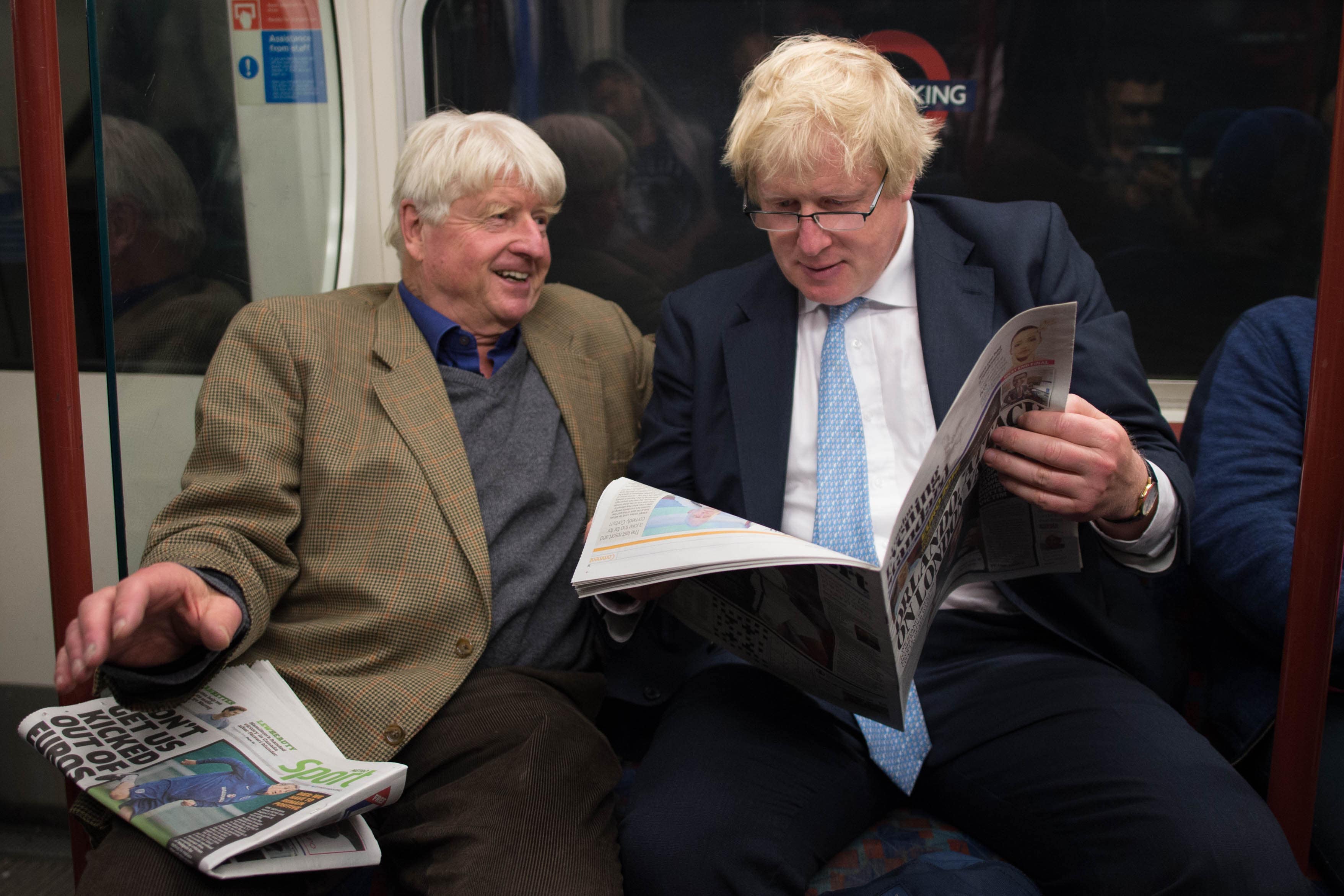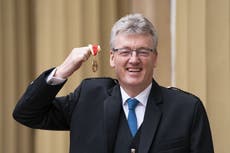What is the ex-prime minister’s honours list and why is it controversial?
Boris Johnson is said to have nominated his father Stanley for a knighthood
Britain’s controversial honours system is once again under the spotlight amid reports that Boris Johnson has nominated his father Stanley for a knighthood.
Such honours are typically awarded to people who have made outstanding contributions to charity, business, science, sport, the arts and other areas of public life.
They are also sometimes given to political allies, friends and associates of prime ministers and their parties.
Awards are usually recommended by panels of independent experts who are distinguished in their respective fields.

What honours nominations can ex-prime ministers make?
Prime ministers can nominate people for awards and can make appointments to the House of Lords, parliament’s second chamber. Appointments to the Lords are made by the government and approved by the monarch.
They are overseen by a House of Lords Commission but its role is only advisory meaning the prime minister has the final say on putting someone forward for ennoblement.
It has become a tradition for prime ministers to put forward a list of recommendations for both once they leave Downing Street in their “resignation honours list”.
It is believed that Mr Johnson’s list has up to 100 names - twice as many as his predecessors Theresa May and David Cameron.
When did the honours system begin?
The appointment of Knights Bachelor or “bachelor of England” has a long history, dating back to the Norman Conquest in 1066.
Prior to the introduction of the Order of British Empire (the OBE list) in 1917 by King George V, appointments to Orders of Chivalry had been exclusive.
The outbreak of the First World War and the sacrifices made in all areas of society led to a desire to widen the honours systems.
Why is the system controversial?
Questions about whether or not it is open to financial or political influence have been everpresent in political discourse throughout the past century and are often a source of controversy.
Liberal prime minister David Lloyd George became embroiled in a major “cash for patronage” scandal over his list in 1922.
While it was not illegal to buy peerages at the time, Mr Lloyd George was accused of selling them to raise money for his party.
He made a “price list” for the awards, charging £10,000 for a knighthood, £30,000 for baronetcy, and £50,000 upwards for a peerage, with his brazenness in doing so sparking outrage.
From 1917 to 1922, more than 120 hereditary peers were created, although their numbers have since been reduced.
Former Labour prime minister Harold Wilson was also criticised for a number of questionable nominations in his 1976 resignation list which became known as the “Lavender list”.
It was controversial as many felt it green-lighted the ennobling and knighting of dubious businessmen.
Critics also said the list included people who held views antithetical to the values of the Labour Party.
Names included a knighthood for Joseph Kagan, later convicted of false accounting, and businessman Eric Miller, who took his own life while his firm was being investigated.
Who else has been investigated?
Tony Blair, another former Labour prime minister, was questioned by police in 2006 amid a “cash for honours scandal”.
The Metropolitan Police launched an investigation after SNP MP Angus MacNeil complained that four wealthy businessmen were nominated by Mr Blair for peerages after lending the party a total of £5m.
After interviewing 136 people – including Mr Blair, who was spoken to as a witness rather than a suspect – detectives submitted a file to the Crown Prosecution Services which later found that it had insufficient charges to bring any charges.
Former Conservative prime minister David Cameron was accused of “cronyism” when he nominated 50 aides for honours - including four serving cabinet ministers, which was considered an unusual move.
Two party donors who made significant contributions to the Remain campaign before the Brexit referendum were also on his list.
In another honours scandal, The Sunday Times last year said that billionaire businessman Mahfouz Marei Mubarak bin Mahfouz was given a CBE by Prince Charles in a private ceremony at Buckingham Palace in 2016 after he paid “tens of thousands of pounds to fixers with links to the prince who had told him they could secure the honour”.
Sir Gavin Williamson, the MP for South Staffordshire, was given a knighthood by Boris Johnson last year.
It was controversial because critics said Sir Gavin had been rewarded for failing in his stints as defence and education secretary, overseeing the exams fiasco during the Covid pandemic.
Join our commenting forum
Join thought-provoking conversations, follow other Independent readers and see their replies
Comments


Bookmark popover
Removed from bookmarks